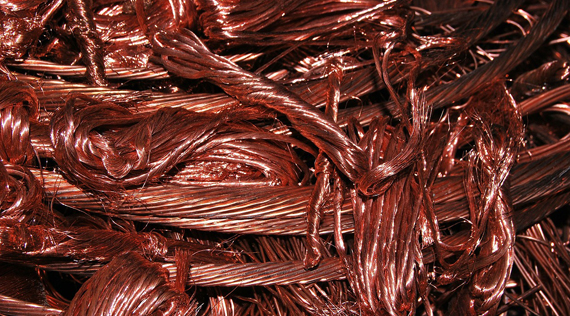
SEATTLE (Scrap Monster): Telecoms groups around the world are forecast to collectively make more than $10bn from the sale of copper over the next 15 years as they remove older cables from their networks, in a boost for the sector as demand for the metal is expected to grow.
Operators are forecast to receive as much as $720mn from copper sales in 2025, according to TXO, which helps telecoms companies recycle and sell the metal. UK-based BT, Nordic operators Telia and Telenor, and Australia’s Telstra are among the companies to have already booked payments for the recycled metal, which is vital for the transition to clean energy.
The industry has been decommissioning legacy copper lines as full-fibre broadband and wireless technology are rolled out, with the groups set to benefit from rising copper prices, which are expected to reach about $12,000 a metric tonne by 2035, according to S&P Global Commodity Insights, up from the present $9,170 a tonne.
Rupert Wood, research director at Analysys Mason, said: “While some copper cables will not be economically recoverable, the potential net one-off financial gains globally still run into many tens of billions of dollars.” He added that the consulting firm expected most telecoms companies to have fully decommissioned copper by 2035.
Prices for the metal, which is used in electricity grids, wiring and electric cars, are volatile and surged to a record high of more than $11,100 in May.
Global demand is expected to rise by 70 per cent from 2021 levels by 2050, according to miner BHP, as the energy transition and power grid buildout create a shortage of the metal.
David Evans, group head of asset recovery services at TXO, said: “Operators engaging in copper recovery now are not only unlocking substantial financial returns but are also addressing a pressing global need for resource sustainability.”
He added that an anticipated surge in demand for the metal “comes at a time when the copper mining industry is unlikely to keep up, pointing to potential supply shortages and higher prices”.
In Australia, Telstra has made a combined total of A$211mn (US$132mn) over the past two financial years from the sale of extracted copper cabling.
BT reported a pre-payment of £105mn for the forward sale of copper in its 2024 financial year. It has also agreed a deal with recycler EMR to support the extraction and recycling of copper cable from its network until 2028. The group has a separate programme to recover old network equipment to reuse or recycle and resell.
Sweden-based Telia said it was expecting to make about €2mn to €3mn from copper sales in 2025, having already received €25mn so far after the company started to phase out its copper network.
Norwegian group Telenor plans to recover and sell approximately 250 tonnes of copper from cables in 2025, which would result in revenue of about €1mn under a revenue-sharing model with its demolition contractor.
The company intends to sell about €68mn worth of copper, primarily from aerial cables and cables in buildings, in the future.
US group AT&T said it was “ramping up our copper recycling efforts over the next few years and reselling it, which allows us to take that money and put it back into the network” and had recycled more than 32,000 metric tonnes since 2021.
For many operators, the revenue received has been immaterial. Companies have to contend with the expense and complexity of recovery as well as the ongoing threat of copper-cable theft.
Belgian group Proximus said the amounts it had made from the sale of copper were “not significant” due to “substantial” costs related to the extraction of cables, low copper content and the complex process to separate it from other materials present.
Dutch operator KPN said it had sold copper from decommissioned networks in small-scale pilots and was following developments in the market, but it was “not so easy” to extract underground copper networks and “quite an expensive operation”.
The copper recovery process was “not straightforward”, said Peter Barnes, a managing director within Macquarie’s commodities financing team. “The regulatory and operational complexity of these projects is significant. A lot of time is spent ensuring that a legacy network can be decommissioned and extracted in line with regulations, after which a bespoke recycling process is required to ultimately produce a saleable commodity.”
Courtesy: www.ft.com



| Copper Scrap View All | |
| Alternator | 0.42 (0) |
| #1 Copper Bare Bright | 4.35 (-0.04) |
| Aluminum Scrap View All | |
| 356 Aluminum Wheels (Clean) | 0.83 (0) |
| 6061 Extrusions | 0.73 (0) |
| Steel Scrap View All | |
| #1 Bundle | 360.00 (0) |
| #1 Busheling | 380.00 (0) |
| Electronics Scrap View All | |